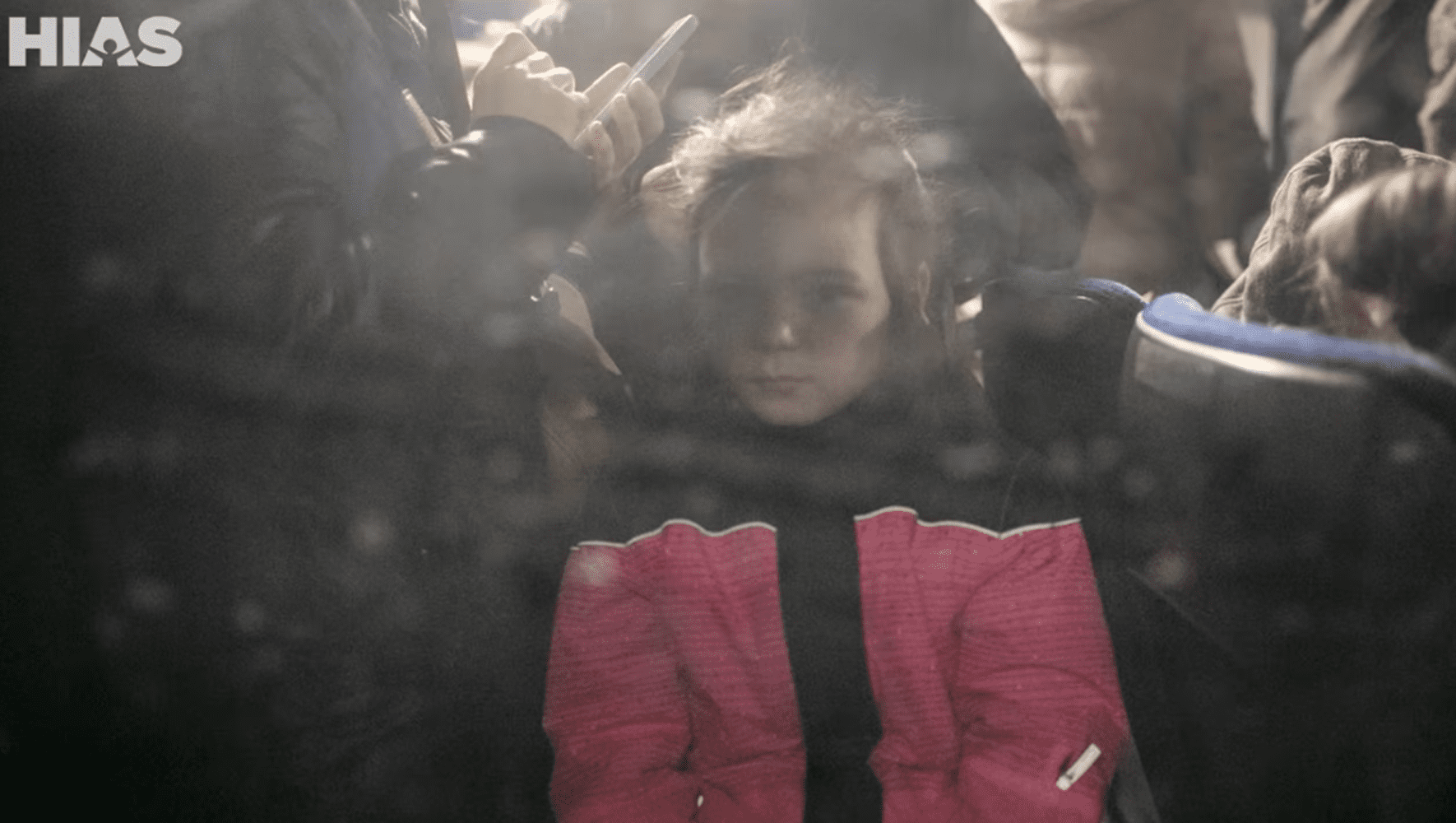SILVER SPRING, Md. – HIAS today released recommendations on how governments, UN agencies and humanitarian organizations can close significant gaps in the protection of people forced to flee the war in Ukraine. At Risk and in Need: Recommendations to Help the Most Vulnerable People Displaced from Ukraine is informed by HIAS’ decades of expertise in the region, and its work globally, to ensure that forcibly displaced populations can access legal protection and refugee resettlement, gender-based violence response services, mental health and psychosocial support, and economic assistance.
The war in Ukraine has led to the largest refugee crisis in Europe since World War II, and one of the fastest large-scale displacements in history. In response, European Union Member States and many governments worldwide are providing temporary status to displaced people, and donor governments have committed billions of dollars to humanitarian relief.
“It’s heartening to see how people around the world have responded to the plight of Ukrainians, but the international community is not stepping up at the scale that’s needed to protect those at greatest risk,” said Rachel Levitan, HIAS Vice President, International Policy and Relations. “The U.S., the EU, and international organizations must provide sufficient humanitarian funding to local organizations on the front lines, to make sure Ukrainians find safe places to live, are shielded from exploitation, and can regain some control over their lives while they wait to see if they can return home.”
HIAS’ policy brief finds that in spite of the swift outpouring of support from the international community, there are significant gaps leaving displaced people in danger of gender-based violence, trafficking, and barriers to safe shelter and effective medical and mental health services. Women and children — the majority of those fleeing Ukraine — are particularly at risk. LGBTQ individuals, stateless persons, and non-Ukrainian asylum seekers also face discrimination and challenges crossing borders and accessing support. People with disabilities and older people are also extremely vulnerable.
The report draws on HIAS’ work with partners in the region and in the U.S. to advance refugee rights and protection, and seeks to elevate the concerns of the populations in the greatest danger fleeing Ukraine. The brief recommends that governments from the EU, U.S., UN agencies, and humanitarian organizations:
- Fund local civil society organizations and engage them in the design of humanitarian responses for vulnerable populations.
- Increase efforts to combat trafficking, exploitation, and abuse.
- Prevent discrimination against LGBTQ, non-Ukrainian asylum seekers and stateless persons.
- Give people fleeing Ukraine access to the U.S. Refugee Admissions Program and other pathways to permanent residence, instead of parole and other forms of temporary protection.
HIAS’ brief concludes that governments must not relinquish their primary role in refugee protection. “Across Europe, volunteers have led the humanitarian response, and the U.S. strategy to welcome Ukrainian refugees relies on sponsors,” Levitan said. “While officials should encourage these responses from civil society, governments must lead and work together in the effort to prevent exploitation and provide comprehensive support and legal status to refugees.”
Download the report here.
###

